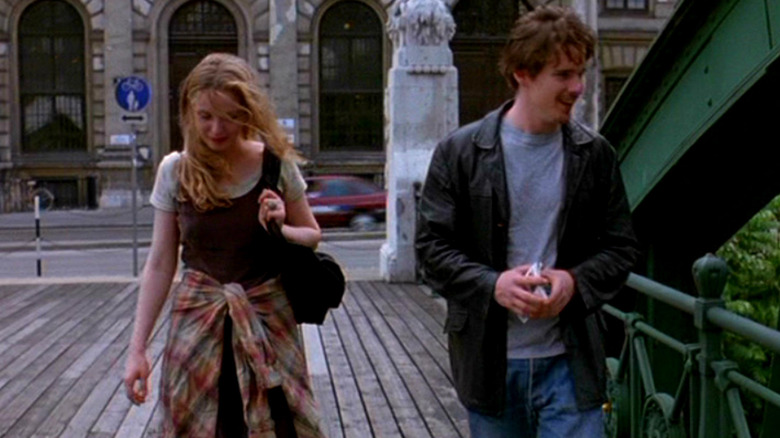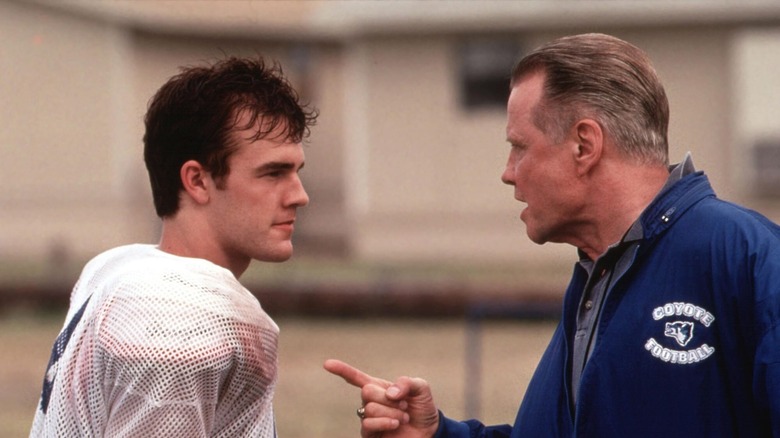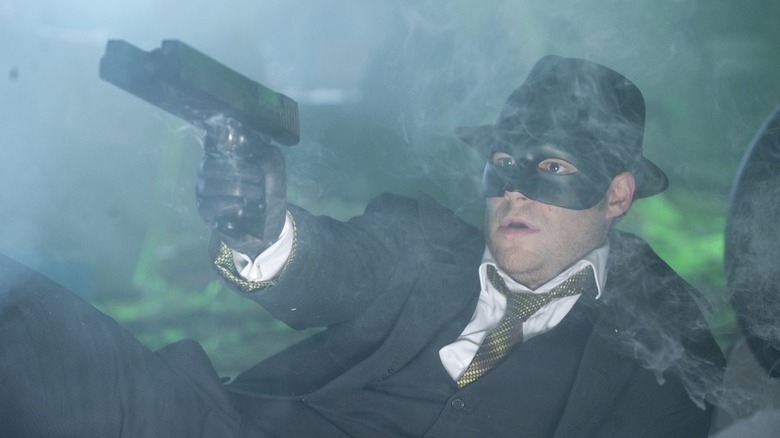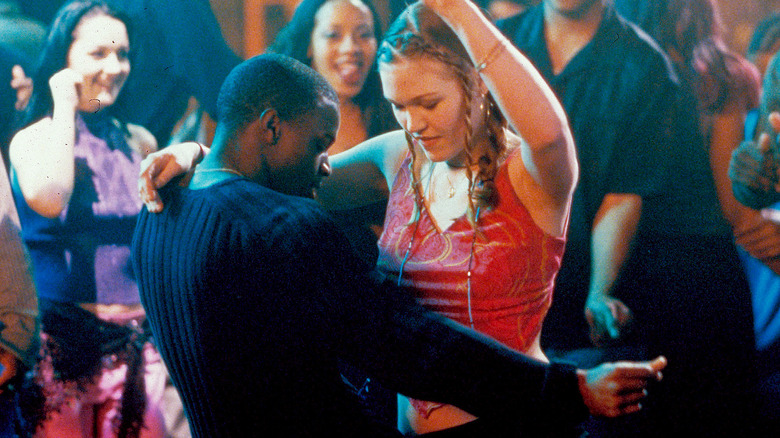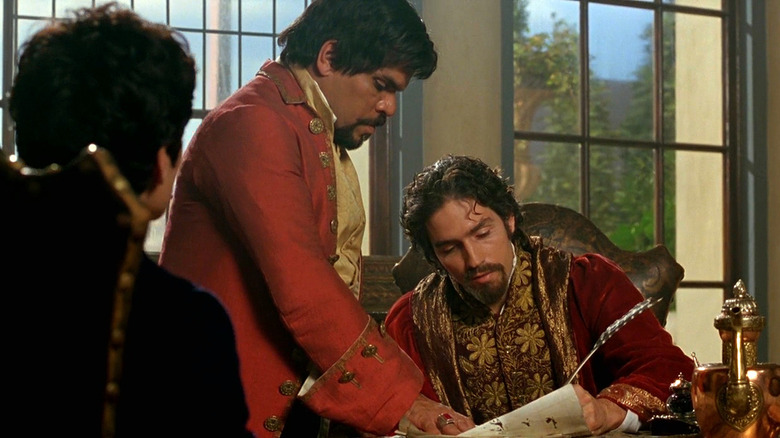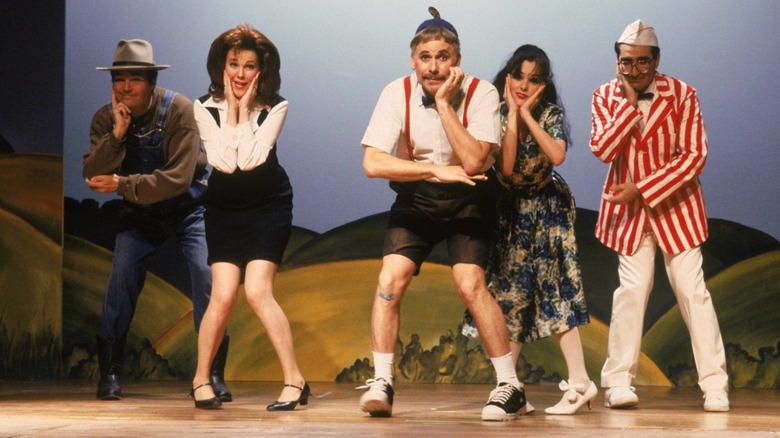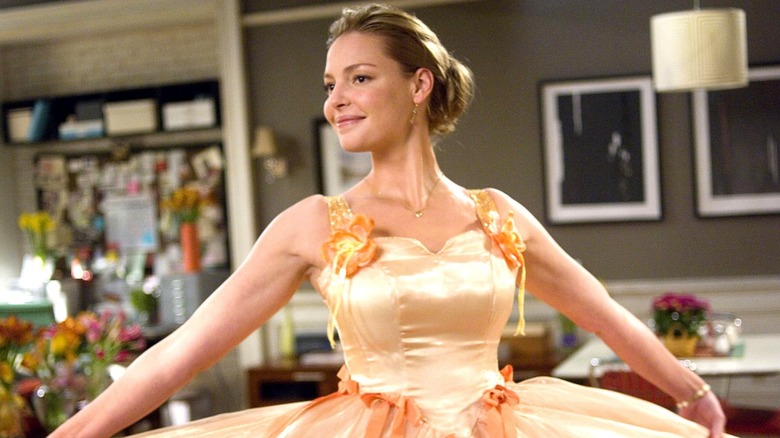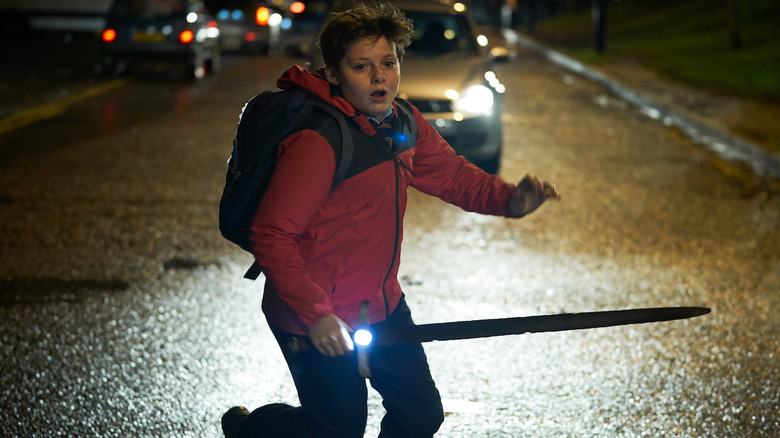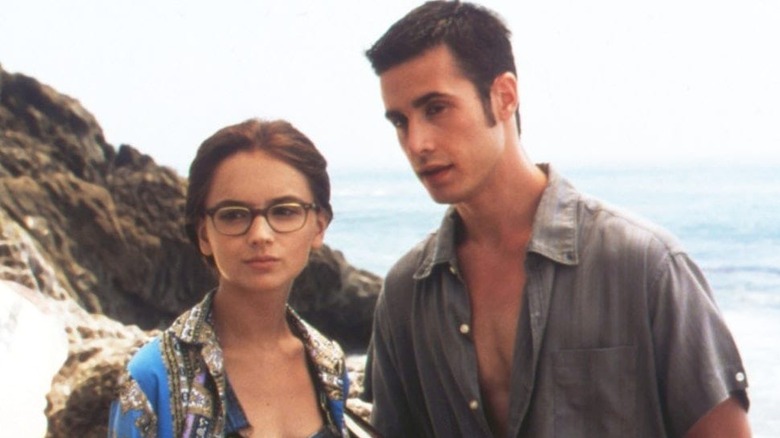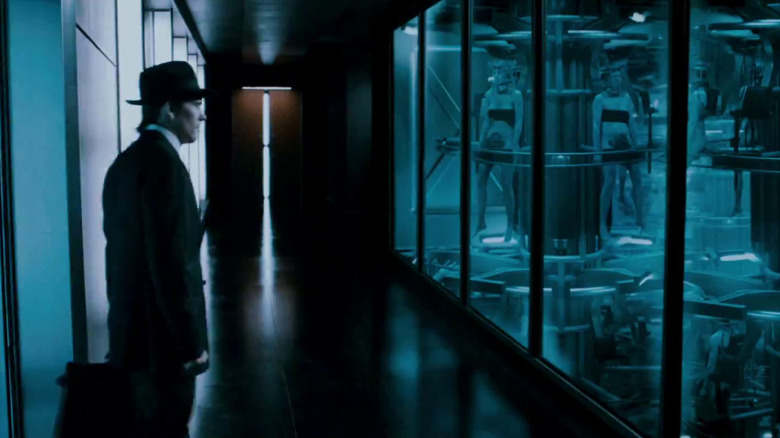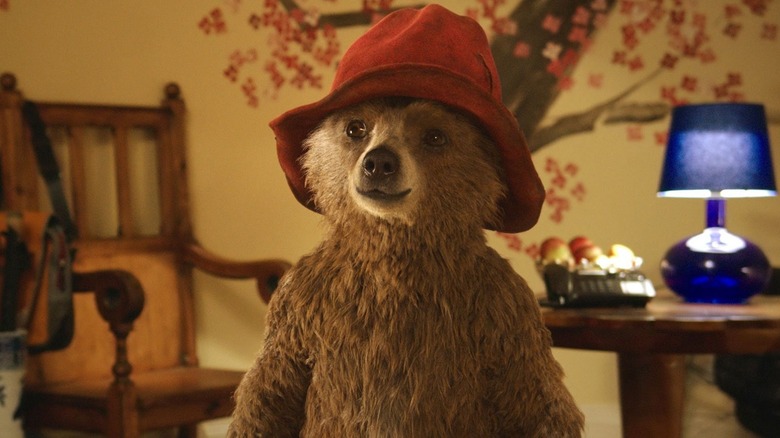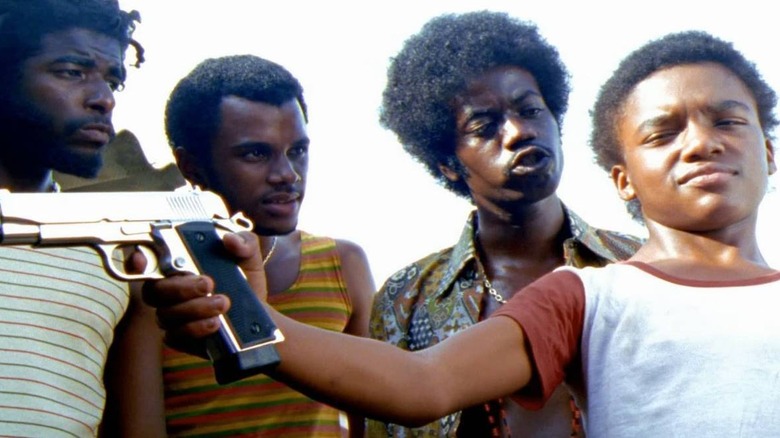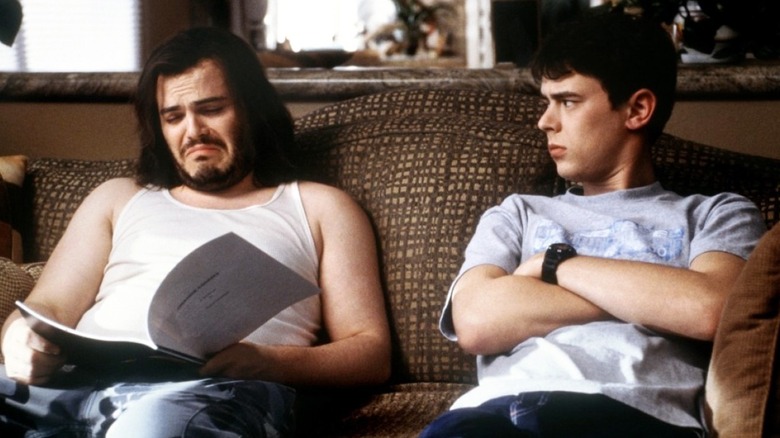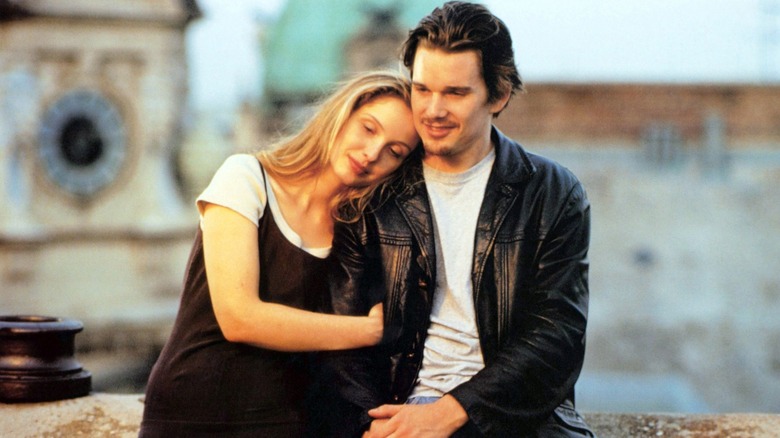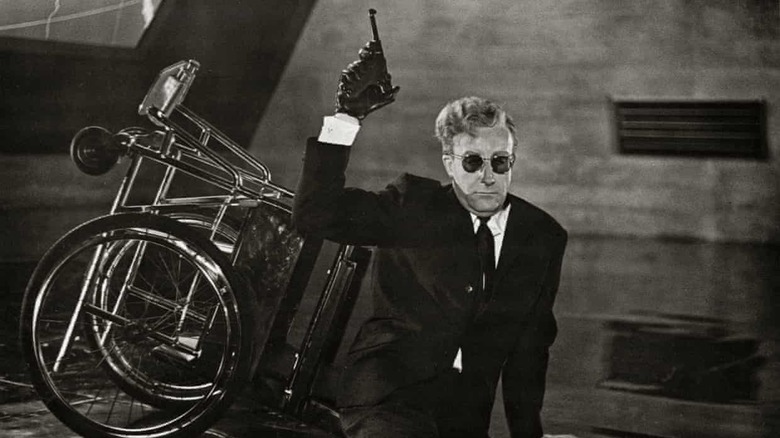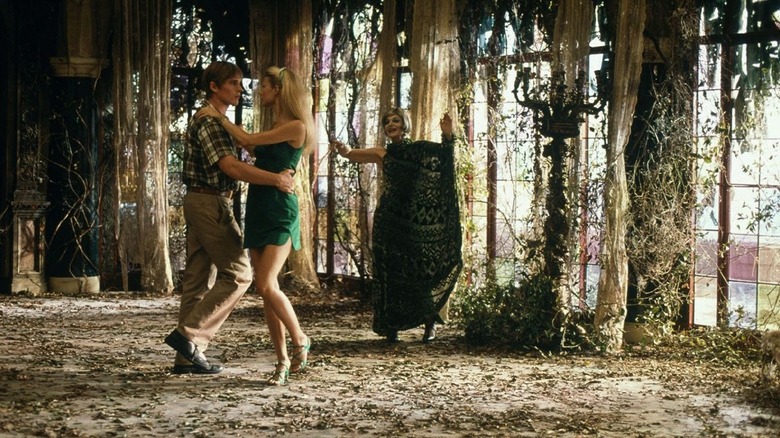15 January Movie Releases That Were Surprisingly Good
The month of July is for big action blockbusters when aliens are blowing up Washington DC, or superheroes are flying in to save the day. The entire fall is generally dedicated to awards fare and everything that could reasonably be expected to compete at the Oscars. Then you've got January, which is for, well, pretty much all the movies the studios had completely lost faith in but felt obligated to release anyway. Poor old January has long been considered the garbage heap of the cinematic year where complete disasters are pushed out without any fanfare in the vain hope that no one will notice them.
Despite its less than stellar reputation, every once in a while, there's a January release that takes off beyond what any film executive could have hoped for. Plenty are far better and more beloved than the studios were banking on, proving that sometimes the expectation of failure is the greatest gift a thoroughly average-to-good movie can receive.
Varsity Blues
While James Van Der Beek was at the height of his fame, starring on teen melodrama "Dawson's Creek," he could headline a soapy cinematic high school drama with the best of them. In 1999, he starred in "Varsity Blues," playing a second-string quarterback who carries an immense burden on his shoulders when the team's starter (played by Paul Walker) is injured. This is a football town, and not only is his school counting on him to lead them to victory, but the entire town demands excellence.
This is to say nothing of the fact that he isn't actually that interested in being a big Texas football star. He dreams of leaving his small town behind and going to college in the Northeast, and he only plays football because it's what his father expects of him. In many ways a spiritual predecessor to "Friday Night Lights," "Varsity Blues" was a modest success at the box office, despite the fact that critics were none too impressed by its offerings.
The Green Hornet
When we look at "The Green Hornet," which came out in 2011 right in the midst of the "Dark Knight" trilogy when superhero movies were expected to be dark and gritty, it's easy to see why it didn't have a lot of traction. With the gift of hindsight, however, we can see the slight action comedy for what it is: a refreshingly light-hearted superhero flick that may not set the world aflame with its excellence, but is fun in its own right. Seth Rogen stars (a coup at the time — this was his first high-profile release that wasn't stoner-comedy-adjacent) as Britt Reid, a spoiled media heir who, in the wake of his father's death, teams up with Kato (Jay Chou) to become masked vigilantes.
Originally created as a radio and movie serial character in the 1930s, the Green Hornet was adapted for television in 1966. With this history in mind, it was clear from the very beginning that "The Green Hornet" would have some big shoes to fill — the television series, although only running for one season, launched the career of martial arts superstar Bruce Lee in the United States. And while the 2011 version of "The Green Hornet" doesn't quite reach those heights, it's much better than it seemed upon first release.
Save the Last Dance
Alright, no one is going to try to convince you that "Save the Last Dance" is Shakespeare. The scene where Julia Stiles does a very stilted dance combining ballet and hip-hop for her Juilliard audition alone makes it a January stinker. Yet, there's something about "Save the Last Dance" that caught our attention, especially if you happened to be middle-school to high-school-aged when it was released in 2001.
Julia Stiles stars as Sara Johnson, an elite dancer whose world is upended when her mother dies suddenly in a car accident while trying to get to her daughter's Juilliard audition. She moves from the Chicago suburbs to live with her estranged father and begins attending school in a rough neighborhood on the South Side. It's there that she meets Derek (Sean Patrick Thomas) who teaches her hip hop dance. "Save the Last Dance" may seem a little cliché now, but at the time it was a surprisingly successful film, earning over $120 million on a $13 million budget.
The Count of Monte Cristo
Everyone loves a good revenge story. "The Count of Monte Cristo" is the tale of Edmond Dantès (Jim Caviezel) who, after being unjustly imprisoned for a number of years, discovers that his supposed best friend Fernand (Guy Pearce) has stolen his girlfriend Mercedes (Dagmara Dominczyk). Edmond plays a very long game to get back at everyone who wronged him. Now in possession of a massive fortune thanks to a fellow prisoner (Richard Harris) and a crew of newfound pirate friends, he makes his return to Parisian society as the fabulously wealthy Count of Monte Cristo.
The righteous fury of Edmond and his methodically planned out revenge scenarios make "The Count of Monte Cristo" both entertaining and emotionally cathartic. Gorgeous location shoots and swashbuckling swordfight sequences made the film a modest hit with both audiences and critics, earning $75 million at the box office and receiving generally positive reviews. It also has the special distinction of featuring a young Henry Cavill in one of his earliest film roles as the son of Fernand and Mercedes.
Waiting for Guffman
From the endlessly inventive mind of actor and director Christopher Guest comes "Waiting for Guffman," a film that will cause everyone who's ever been involved in community theater to feel equal parts amused and attacked. Guest stars as a small town theater director whose latest production is a musical called "Red, White, and Blaine" in celebration of the community's 150th anniversary. He uses his old, tenuous theater connections to invite a Broadway producer to their show, sparking hopes among the cast that this might be the first step on a journey to the Great White Way.
"Waiting for Guffman" features a familiar cast of improv actors who appear in many of Guest's films, including Catherine O'Hara, Eugene Levy, and Fred Willard, all of whom bring a unique charm to the production. For the original songs in the film, Guest reunites with this "This is Spinal Tap" co-stars Michael McKean and Harry Shearer. The result is an endlessly endearing comedy about a small town filled with big dreamers.
27 Dresses
If there's any romantic comedy actress from the past 20 years who has truly been done dirty, it's Katherine Heigl. In the late 2000s, she did a string of comedies, many of which were financially successful, only to have her career tanked virtually overnight by accusations that she was "difficult" to work with. But at the time that "27 Dresses" was released in 2008, she was still at the top of her game, starring on "Grey's Anatomy" by day and headlining rom-coms by night.
Heigl stars as Jane, a woman who has become pretty much a professional bridesmaid having appeared in, as the film's title would suggest, 27 different weddings. She has a tendency to put others before herself, something that only becomes an issue when her sister (Malin Akerman) is engaged to the man (Edward Burns) that Jane secretly loves and asks her to be in the wedding. Audiences responded to Jane's plight, propelling "27 Dresses" to a total box office of $162.5 million.
The Kid Who Would Be King
As many adaptations of Arthurian legends as there have been, it seems like many of the best are the ones that are geared towards children. As a foundational piece of mythology that combines brave, quasi-historical heroes with more fantastical elements, it's a literary gateway for kids. And that is why "The Kid Who Would Be King" works so well. It not only tells the story of King Arthur in a kid-friendly way; it places a young boy, Alex (played by Louis Ashbourne Serkis, son of actor Andy Serkis), at the center of its narrative.
When Alex stumbles upon the sword Excalibur, he must assemble his own middle-school version of the Round Table to stop the enchantress Morgana (Rebecca Ferguson) from destroying the world. The entire production is an entertaining adventure romp with Angus Imrie worthy of special credit for his performance as an eccentric, world-weary teenage Merlin.
She's All That
Look, part of enjoying "She's All That" is coming to terms with the fact that its premise makes absolutely no sense. Freddie Prinze Jr. plays a popular high-schooler who is bullied into a bet that will see him transform the most tragic girl in school into a prom queen, and he picks ... Rachael Lee Cook? An objectively beautiful girl who just happens to be wearing baggy overalls and a pair of glasses? And we haven't even gotten to the famous prom scene where the entire high school breaks out into a choreographed dance number so egregiously intricate that they had to add Usher's DJ character saying, "Remember those moves I taught you!" in post-production.
Putting all of that aside (and there's a lot to stretch the limits of our suspended disbelief), as far as 1990s teen rom-coms go, it's pretty cute. Freddie Prinze Jr. and Rachael Lee Cook have good chemistry, and supporting actors such as Paul Walker and especially Matthew Lillard steal the show. Plus, it's not every movie that features an interpretative dance number using a hacky sack as a metaphor for the overwhelming pressure parents can place on their children.
Daybreakers
In the late 2000s, you couldn't swing a cat without hitting a vampire movie. However, few are as underrated as "Daybreakers" starring Ethan Hawke, Sam Neill, and Willem Dafoe. Honestly, the quality of the film should be apparent based on those three names alone. Hawke plays Edward Dalton, a man living in a society that has made peace with vampirism. The biggest problem is that there are so few humans left as to create serious supply chain issues for the blood the vampires desperately need to survive. When Edward is approached by two renegade humans who claim to have a cure that will turn the vampires back into people, his world is changed forever.
"Daybreakers" received mixed-to-positive reviews from critics, and ordinarily would have been likely to make a respectable amount of money at the box office. There was just one problem: "Daybreakers" was released in January 2010, just a few short weeks after the juggernaut "Avatar" would swallow up everything in its wake and dominate cinemas for months.
Paddington
When "Paddington" was first announced, there wasn't a particularly huge buzz surrounding it. Most people were just expecting a cute family movie — nothing that would set the world on fire from a creative standpoint. The distributors released "Paddington" in the dead of January (at least in the United States — it came out in November of the previous year in the U.K.) which is perhaps as big of an indicator as anything that they didn't quite know what they had on their hands.
When Paddington (voiced warmly voiced by Ben Whishaw) first arrives in London looking for a family to take care of him, he immediately steals the hearts of both children and adults. "Paddington" became a massive success, eventually earning over $282 million at the box office and receiving rave reviews from critics, proving that every once in a while, a real star can come out of a January release. (Note that "Paddington 2," the sequel that many consider superior to its predecessor, also came out in January — but we're not including both, because we don't want to corrupt sweet little Paddington by giving him a big head!)
City of God
A surprise hit out of Brazil, "City of God" wasn't so much strategically released in January as it was the victim of a staggered international schedule that, after premiering at Cannes Film Festival in May 2002, finally saw it make its American debut in January 2003. Set in the favela slums of Rio de Janeiro, "City of God" focuses on a group of young boys growing up amidst the expansion of organized crime throughout the late 1960s and 1970s. It stars a largely unknown cast of young actors but still struck an immediate chord with audiences.
In 2004, it was nominated for four Academy Awards, including one for director Fernando Meirelles. Interestingly enough, it was the rare international film to be acknowledged in multiple categories without securing a nomination for best foreign language film. In a review for "Empire," critic Colin Kennedy wrote effusively of "City of God," saying, "At once a laboratory for cinema technique and a victory for raw heart, this is a snot-nosed, blood-stained masterpiece."
Orange County
If you were an over-achieving teenager when "Orange County" came out in 2002, this was your worst nightmare. Colin Hanks plays Shaun Brumder, an aspiring novelist who is determined to escape his shallow, affluent upbringing and attend Stanford only to realize that, thanks to a snafu in his high school guidance office, the wrong transcripts were sent to the school and he has been rejected. This leads to a full-on crisis of faith with Shaun pulling out all the stops to finagle his way into Stanford, including, but not limited to, having his stoner brother (Jack Black) "accidentally" burn down the college admissions building.
In the end, Shaun comes to terms with the fact that you're a writer because you write, and creative writing courses at Stanford aren't going to be the thing that makes or breaks his authorial career. "Orange County" often gets lost in a sea of early 2000s teen comedies, but it deserves much more credit than it receives. Colin Hanks proves to be a charming leading man who has great chemistry with the oddball collection of relatives he's paired with, including Black, Catherine O'Hara, and John Lithgow.
Before Sunrise
"Before Sunrise" is the rare January release that was not pushed into theaters during the winter slump because no one knew what to do with it. The film was actually released quickly, to capitalize on the success of its world premiere at the Sundance Film Festival in 1995. The authentic, naturalistic romance stars Ethan Hawke and Julie Delpy as Jesse and Celine, a pair of strangers who meet on a train to Vienna and impulsively decide to spend the night together exploring the city before Jesse's flight back to the United States in the morning.
The rootless narrative and easy chemistry between the two actors struck a chord with viewers, receiving glowing reviews from critics. "Before Sunrise" was so well-received that, despite initially focusing on just one night between two charismatic strangers who make ambiguous promises to meet again in six months, it spawned two sequels: "Before Sunset" in 2004 and "Before Midnight" in 2013.
Dr. Strangelove or: How I Learned to Stop Worrying and Love the Bomb
To be fair, January's reputation for being a dumping group for unwanted cinema was only cemented over the past few decades. When "Dr. Strangelove or: How I Learned to Stop Worrying and Love the Bomb" was released in January 1964, there was little evidence to suggest that anyone would have been expecting a (forgive the pun) bomb. Indeed, Stanley Kubrick's war satire became an almost immediate classic.
When a U.S. general (Sterling Hayden) grows increasingly unstable, he begins to suspect the Soviets of conspiring to pollute the bodies of the American people and orders a nuclear attack to take out the U.S.S.R. once and for all. The production played on Cold War fears and paranoia which had percolated through the 1950s and early 1960s, reaching a fever pitch with the Cuban Missile Crisis. The American Film Institute includes "Dr. Strangelove" on its list of best American movies, and it received four Oscar nominations, including best picture, best director, and best actor for Peter Sellers.
Great Expectations
Based on the coming-of-age novel by Charles Dickens, this adaptation of "Great Expectations" trades Industrial Revolution-era London for modern-day coastal Florida. It stars Ethan Hawke as Finn, a talented artist who, as a child, is taken under the wing of Nora Dinsmoor (Anne Bancroft), an eccentric recluse who never recovered from having been left at the altar several decades earlier. Her manor house is a relic of the past, nothing in it having changed since her wedding day with only nature creeping in to show the passage of time. Nevertheless, it's here that she raises her niece Estella (Gwyneth Paltrow), training her to be cold and unfeeling as a final revenge against the world. Inevitably, Finn falls in love with her.
Alfonso Cuarón builds a moody, atmospheric world within "Great Expectations," reflecting the cold beauty of Estella herself. Surprisingly, he has since claimed in a Hollywood Reporter roundtable interview to have had a horrible time making the film. In an interview with GQ, Hawke attributed the financial failure of the film to the lack of audience interest in romances during the immediate aftermath of the "Titanic" craze. Still, we have to put the kissing-in-the-rain sequence set to Patrick Doyle's triumphant, achingly beautiful score up there with the best that 1990s romance has to offer.
